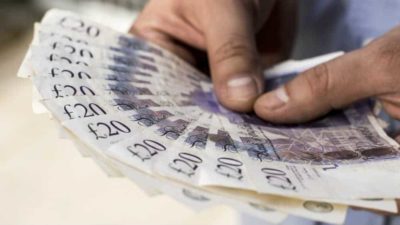Have you ever wondered how the interest on your mortgage, loan, credit card and savings account is calculated? You may have heard the term ‘base rate’ and wondered what it is and how it affects your borrowing. Let’s take a look at what the base rate is why it matters.
It’s important to note that the base rate can change (increase or decrease) every six weeks. However, history tells us that it can also remain unchanged for years.
[top_pitch]

Image source: Getty Images
What do you mean by ‘base rate’?
The base rate is an interest rate that goes by many names. It’s known as the Bank of England base rate and the bank rate among others.
In simple words, the base rate is the interest rate paid by banks and lenders when they borrow from the Bank of England. It is viewed as the most important interest rate in the UK because it influences other interest rates. Examples of these ‘other interest rates’ include interest rates on mortgages, loans, credit cards and savings accounts.
How is the base rate calculated?
The base rate is set by the Monetary Policy Committee (MPC). It reflects the government’s targets to keep inflation low and stable. According to the Bank of England, the government has set a target of keeping inflation at 2%.
The committee meets every six weeks to discuss whether the rate should remain the same, increase or decrease. However, the goal is always to have the lowest possible rate.
Andrew Bailey, the governor of the Bank of England, did mention that the base rate could become negative in the future. A negative rate could mean that banks and lenders don’t need to pay any interest when borrowing money.
Note that this doesn’t mean you won’t pay any interest on mortgages, loans and credit cards. Instead, it may just mean that the rate of interest you pay is very low. It will be enough for your lender to make a profit, but it will probably still leave you enjoying low monthly repayments.
[middle_pitch]
What is the base rate today?
At the end of the Monetary Policy Committee meeting on 5 May 2021, a unanimous vote maintained the base rate at 0.1%. This is a record low that is due to the coronavirus pandemic.
From August 2018 to March 2020, the rate was 0.75%. The MPC cut this rate to 0.25% because of coronavirus. It was then cut again to 0.1% on 19 March 2020, where it has been maintained. The next meeting will be held on 24 June 2021.
The good news is that with a low base rate, banks and lenders enjoy a lower interest rate. In turn, they set lower interest rates for mortgages, loans, credit cards and savings accounts, which makes them affordable to many.
How does the base rate affect your mortgage?
How the base rate affects you depends on whether you have a fixed rate or variable rate mortgage.
If you are on a variable mortgage, it means that your mortgage interest changes based on the base rate. If the rate decreases, you will enjoy lower monthly mortgage payments because of the reduced interest. However, if the rate increases, you might face higher monthly mortgage payments due to higher interest rates.
If you have a fixed mortgage, the interest you pay will be unaffected by fluctuations in the base rate.






